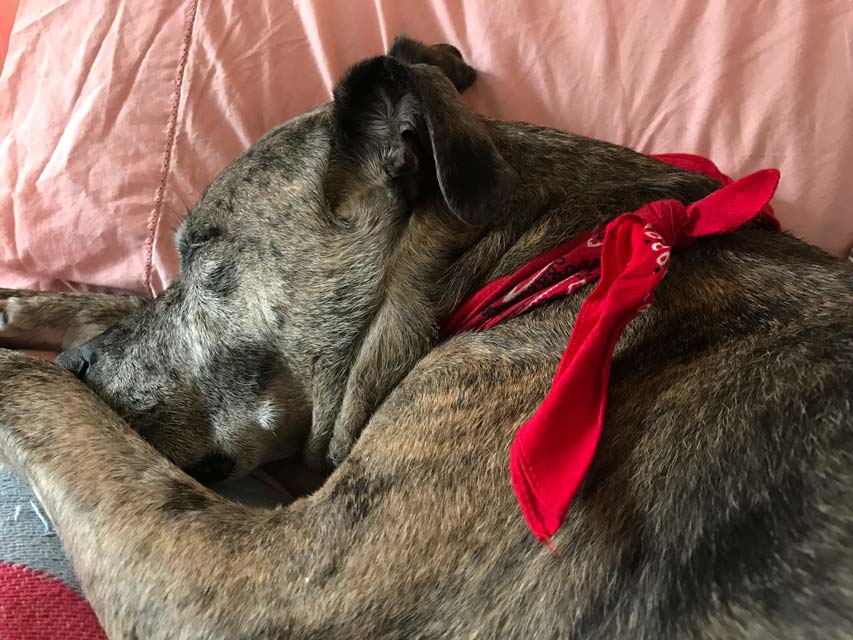My Older Dog Sleeps a Lot: Is He OK?

As your dog ages, things will change. He might slow down, sleep more, and have less energy. Of course, conditions and illnesses can cause new behaviors too, and it can sometimes be difficult to tell the difference.
How Much Do Senior Dogs Sleep?
Dogs do sleep more as they age. But dogs age at different rates. For instance, a giant breed dog like an Irish wolfhound is considered a senior at 6 or 7 years of age while a Chihuahua might not be regarded as a senior until closer to 9 or 10.
Depending on the dog, a senior might sleep between 14 and 20 hours a day.
So How Do I Know if My Senior Sleeps Too Much?
The best way to evaluate whether your dog is sleeping more because of age or due to a health condition is to know his normal behavior and watch for changes. If your dog is usually active and following you around during the day but suddenly begins sleeping most of that time instead, there might be a problem.
Additionally, if other behavior or health signs appear at the same time as an increase in sleep, it's more likely to be a health problem. For instance, if your dog's appetite decreases simultaneously with a significant increase in sleep, he might be sick.
Here are some signs of illness to watch for in your senior pet:
- Change in appetite
- Weight loss
- Increased thirst
- Urinary accidents
- Increased urination
- Decreased activity
- Limping
If you're not sure, schedule a veterinary visit. The doctor will do a thorough exam, ask you questions, and possibly run lab work that might help reveal whether your dog is experiencing normal age-related tiredness or has an illness.
Provide Good Sleeping Arrangements for Your Senior
Your senior dog might have arthritis that can cause stiffness and pain. And if he's spending more time sleeping, in general, you'll want to be sure he has a nice, comfortable bed.
Look for something with lots of cushioning for older joints, but keep your dog's sleeping preferences in mind. Does he usually stretch out or curl up? A shallow bed might help him get in and out better, but if he prefers high sides like a den has, he might not use a shallow bed.
Do what you can to increase the cushion and softness of your senior dog's bed without giving him something he won't like.
You May Also Like These Articles:
Cognitive Dysfunction Syndrome: Senility in Dogs
Dogs with Arthritis May Benefit from Stem Cell Therapy
Causes of Lameness in Dogs: An Overview
The Truth About Dog to Human Age Conversion
Disclaimer: This website is not intended to replace professional consultation, diagnosis, or treatment by a licensed veterinarian. If you require any veterinary related advice, contact your veterinarian promptly. Information at DogHealth.com is exclusively of a general reference nature. Do not disregard veterinary advice or delay treatment as a result of accessing information at this site. Just Answer is an external service not affiliated with DogHealth.com.
Notice: Ask-a-Vet is an affiliated service for those who wish to speak with a veterinary professional about their pet's specific condition. Initially, a bot will ask questions to determine the general nature of your concern. Then, you will be transferred to a human. There is a charge for the service if you choose to connect to a veterinarian. Ask-a-Vet is not manned by the staff or owners of DogHealth.com, and the advice given should not delay or replace a visit to your veterinarian.



